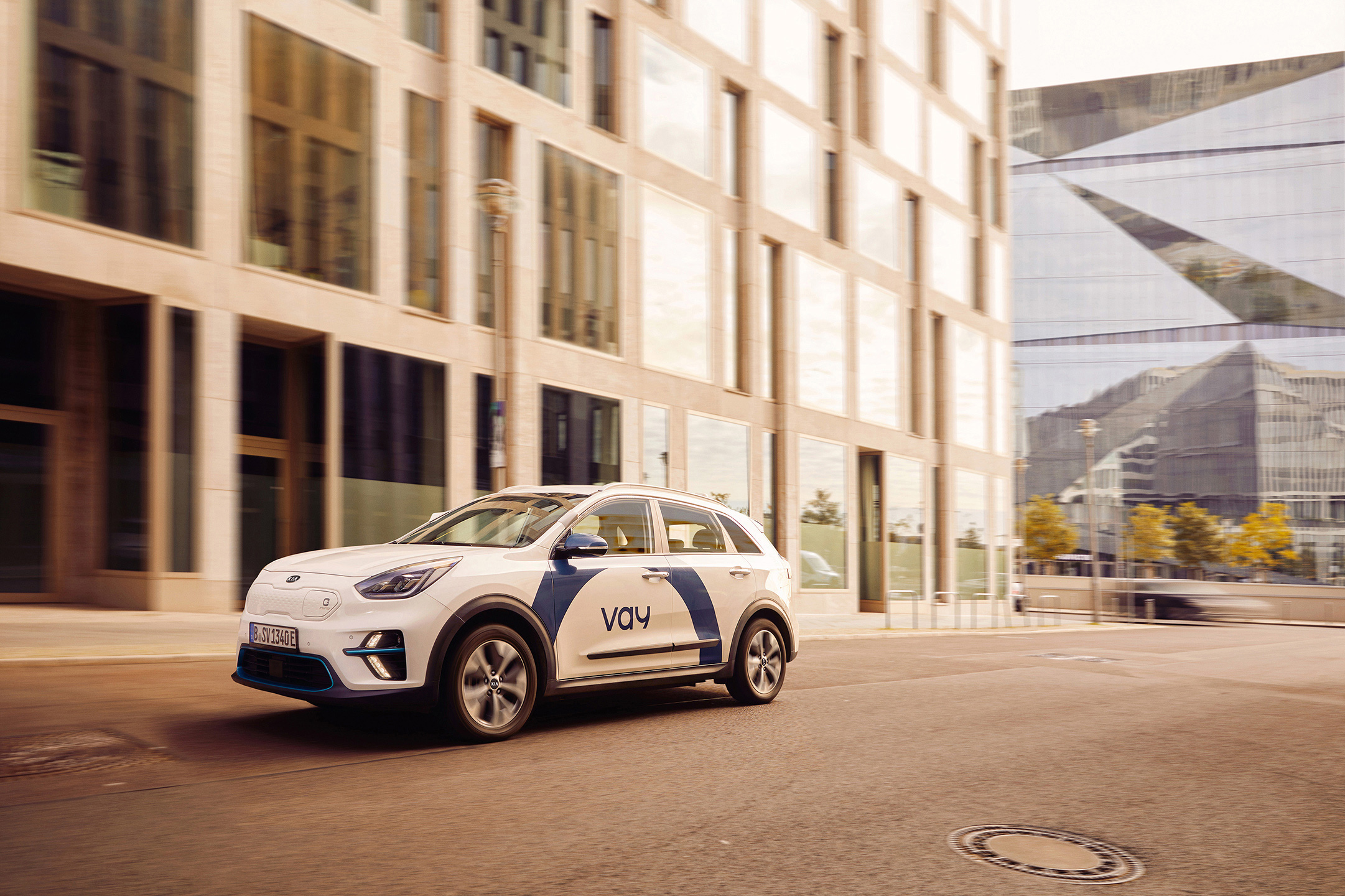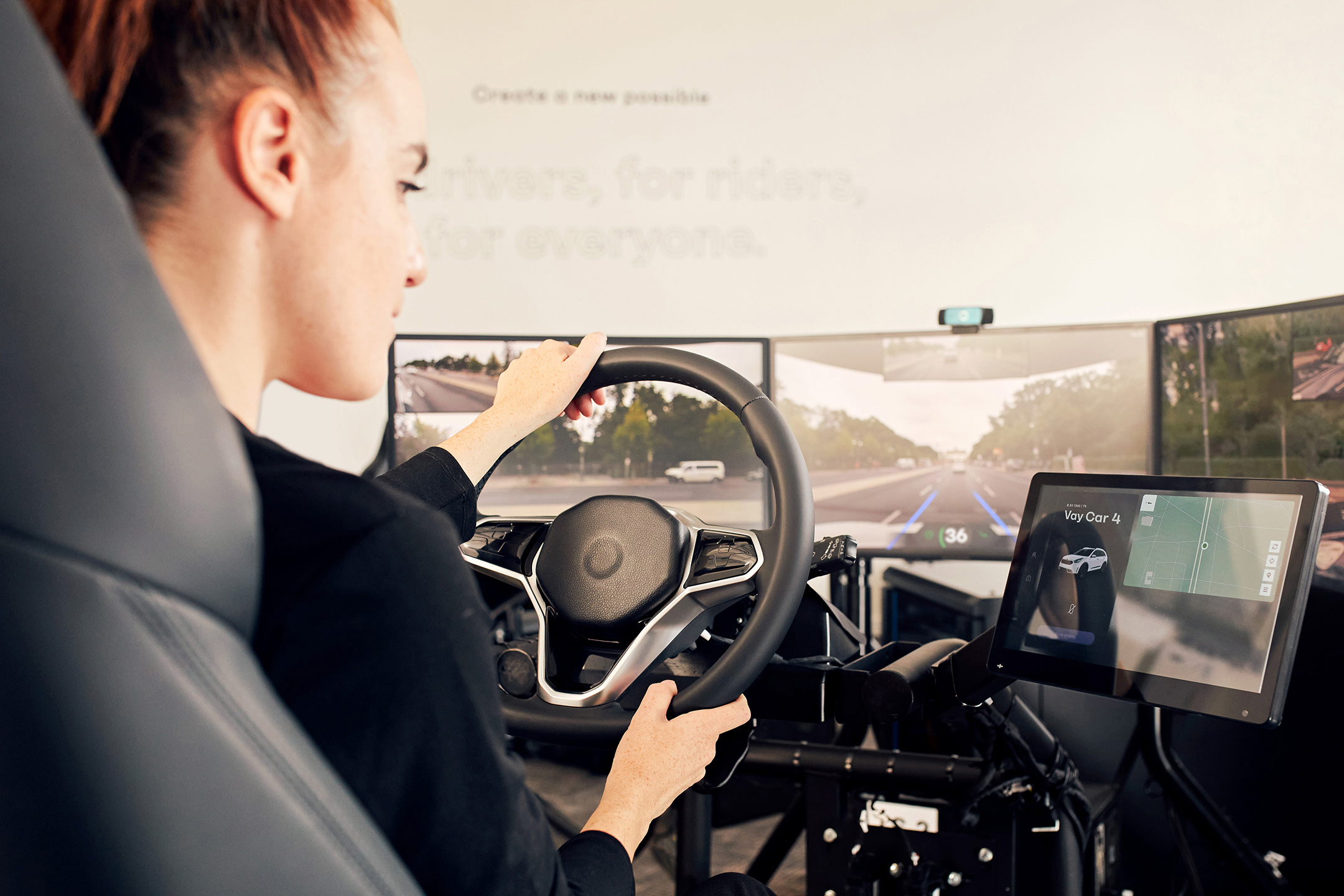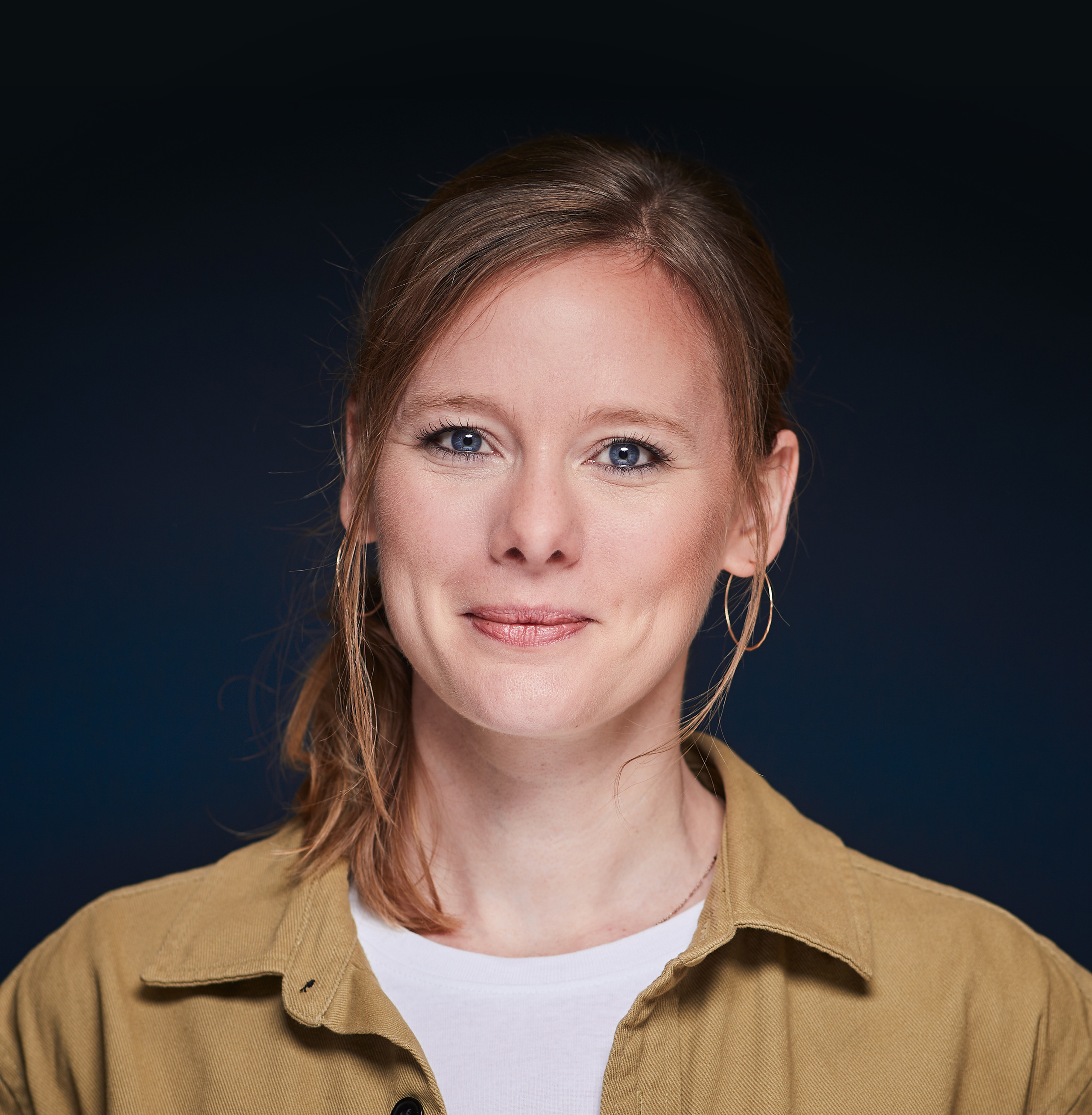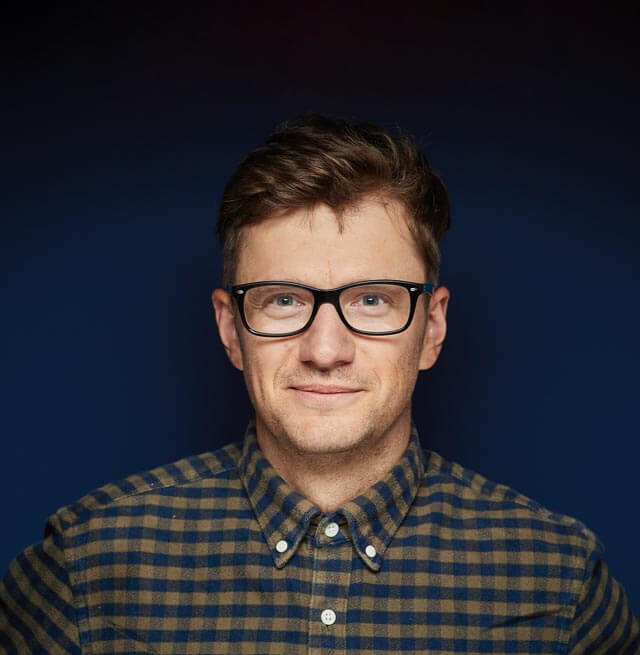- Vay receives an exemption permit from the city of Hamburg for teledriven test rides without a safety driver
- A positive endorsement by TÜV SÜD is one of the prerequisites
BERLIN, 21st December 2022 – Vay is the first company in Europe to receive an exemption permit for test rides without a safety driver on public roads, enabled by teledriving. The exemption permit is issued by the Authority for Traffic and Mobility Transition (BVM) in Hamburg. A positive endorsement by TÜV SÜD was one of the prerequisites for the approval of the authorities. TÜV SÜD looked in particular at the functional safety and cybersecurity of the Vay teledrive system in accordance with the ISO 26262 and ISO/SAE 21434 standards. TÜV SÜD is an independent third-party for testing, certification, auditing and advisory services.

As a leading teledriving company, Vay has been operating remotely-controlled electric cars on public roads in Berlin and Hamburg for more than three years. So far still with a safety driver. With the exemption permit now available, Vay can conduct tests in a predefined area in Hamburg-Bergedorf without a safety driver in the car. Vay is currently working on the preparations for this significant milestone in the company’s four-year history.
“We are very happy about the good cooperation with the authorities and this important step to get our unique concept on the road as soon as possible. It is great to see that this can be done out of Europe”, says Thomas von der Ohe, co-founder and CEO of Vay.

Sustainable and affordable door-to-door service
Vay is working on a door-to-door service where customers order an electric vehicle via the Vay app. What’s unique about Vay’s mobility service is that a teledriver brings the car directly to the customer – remotely controlled from the teledrive center. Teledrivers sit at a teledrive station with a steering wheel and pedals developed according to automotive industry standards. The driver has an overview of the traffic situation via several screens. Upon arrival of the car, the customer then physically drives themselves to their destination. Once the customer has arrived at their destination, a teledriver takes over the vehicle once again, meaning the time-consuming search for a parking space is eliminated. In terms of cost, Vay’s service is intended to be similarly priced to carsharing offers and to be a convenient alternative to private car ownership in the long term.
“With our mobility service with electric cars, more people can be transported with fewer vehicles. This leaves more space for better living in cities“, says Thomas von der Ohe. Vay expects that it can reduce personal transportation costs and increase road safety. Through teledriving, Vay wants to help reduce the four main causes of fatal accidents in inner cities: driving under the influence of alcohol or drugs, speeding, distraction and fatigue.
Without safety driver on public roads
The TÜV SÜD endorsement was a requirement for validating the readiness of Vay’s vehicles to drive on public roads without a driver in the car. “Intelligent mobility solutions are an essential part of the mobility transition. That’s why we are delighted that Vay intends to offer a modern teledriving service in our city and is now testing this innovative model without a safety driver in Bergedorf“, says Anjes Tjarks, Hamburg’s Senator for Transport and Mobility Transition. “For us in Hamburg, modern mobility solutions for our citizens are a major political priority. We are constructively supporting ideas that evolve highest demands on safety.“
Images and further information can be found here: www.vay.io/press
About Vay
Vay aims to launch a sustainable, affordable, door-to-door mobility service with remotely driven (“teledriven“) cars: Teledrivers bring an electric car to the customer and pick it up after the journey is completed, eliminating the time-consuming search for a parking spot for the customer. While in the car, the customers drive themselves. Vay sees teledriving as an alternative approach to autonomous driving and aims to gradually introduce autonomous functions in its system based on high-quality teledrive data.
Vay was founded in Berlin in 2018 by Thomas von der Ohe, Fabrizio Scelsi and Bogdan Djukic. Vay’s team of 150+ people combines the best of two worlds – software & product experience from Silicon Valley and automotive hardware & safety engineering from Europe. The company has offices in Berlin and Hamburg, Germany, as well as in Portland, USA. Vay raised a USD 95m Series B funding round. Investors include Kinnevik, Coatue, Eurazeo, Atomico, La Famiglia and Creandum as well as prominent business angels such as former Alphabet Chief Financial Officer Patrick Pichette, former member of the management Board for R&D, Design, CTO of Audi Peter Mertens and Spotify’s Chief Technology & Chief Product Officer Gustav Söderström. www.vay.io
Vay press contact
Anja Rechtsteiner
Head of Communications
[email protected] / press
+49 176 60404217
Background information on the TÜV SÜD endorsement
Requirements for the TÜV SÜD endorsement
In addition to the system’s compliance with the technical specifications for road approval, the basis for the endorsement by TÜV SÜD was the reliable control and monitoring of all relevant vehicle functions from the teledrive station. Vay operates with redundant mobile networks to ensure secure and continuous data transmission. In the event of possible but extremely rare network failures or emergencies, the vehicle automatically puts itself into a safe state within milliseconds by coming to a safe stop.
“Functional safety“ based on ISO 26262
The Vay system was developed in accordance with automotive industry standards, including ISO 26262 – the international standard for safety-related electrical and electronic (E/E) systems in road vehicles. In the case of Vay, it covers not only the vehicle itself, but also the entire system. This includes the teledrive station, in which a steering wheel with pedals and all necessary operating devices is mounted in front of the vehicle seat. Additionally, the resistance forces experienced during real-world operation such as longitudinal and lateral acceleration are visualized. Moreover, teledrivers have a field of vision displayed on monitors so that they can control the vehicle remotely. Road traffic sounds, such as emergency vehicles and other warning signals, are transmitted efficiently and quickly via microphones and headphones.
Furthermore, teledrivers are specially trained. They receive several weeks of practical and theoretical training at the Vay Teledrive Academy, which finishes with a certificate. They learn how to deal with critical situations in road traffic.
“Cybersecurity“ in accordance with ISO/SAE 21434
ISO/SAE 21434 is a new standard for cybersecurity in the automotive industry. It specifies that the system must be protected from external attacks. For example, data at Vay is encrypted at all transmission points. The teledrive stations can only be accessed by authorized teledrivers. Access is secured via technical measures.
“The TÜV SÜD endorsement is the result of more than a year of testing the Vay system. Our experts reviewed the risk analyses and safety concepts at Vay for functional safety and cybersecurity and processed extensive documentation before testing all relevant driving functions in real and simulated scenarios on the road and on private ground. The focus was particularly on communication between the vehicle and the teledrive station. As a result, the functional safety and cybersecurity requirements relevant to this use case have been sufficiently met“, says Christian Gnandt, Global Head of Automated Driving at TÜV SÜD.











